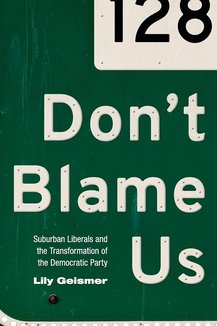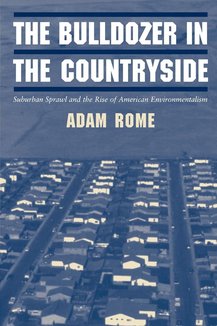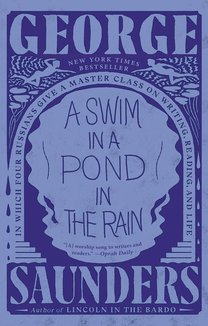Recommended Books

Don't Blame Us: Suburban Liberals and the Transformation of the Democratic Party (Politics and Society in Modern America)
Author:
Lily Geismer
ISBN 13:
978-0691176239
Don't Blame Us traces the reorientation of modern liberalism and the Democratic Party away from their roots in labor union halls of northern cities to white-collar professionals in postindustrial high-tech suburbs, and casts new light on the importance of suburban liberalism in modern American political culture. Focusing on the suburbs along the high-tech corridor of Route 128 around Boston, Lily Geismer challenges conventional scholarly assessments of Massachusetts exceptionalism, the decline of liberalism, and suburban politics in the wake of the rise of the New Right and the Reagan Revolution in the 1970s and 1980s. Although only a small portion of the population, knowledge professionals in Massachusetts and elsewhere have come to wield tremendous political leverage and power. By probing the possibilities and limitations of these suburban liberals, this rich and nuanced account shows that―far from being an exception to national trends―the suburbs of Massachusetts offer a model for understanding national political realignment and suburban politics in the second half of the twentieth century.

The Bulldozer in the Countryside: Suburban Sprawl and the Rise of American Environmentalism (Studies in Environment and History)
Author:
Adam Rome
ISBN 13:
978-0521804905
The Bulldozer in the Countryside is the first scholarly history of efforts to reduce the environmental costs of suburban development in the United States. The book offers a new account of two of the most important historical events in the period since World War II--the mass migration to the suburbs and the rise of the environmental movement. This work offers a valuable historical perspective for scholars, professionals, and citizens interested in the issue of suburban sprawl.

A Swim in a Pond in the Rain: In Which Four Russians Give a Master Class on Writing, Reading, and Life
Author:
George Saunders
ISBN 13:
978-1984856036
NEW YORK TIMES BESTSELLER • From the Booker Prize–winning author of Lincoln in the Bardo and Tenth of December comes a literary master class on what makes great stories work and what they can tell us about ourselves—and our world today. LONGLISTED FOR THE PEN/DIAMONSTEIN-SPIELVOGEL AWARD • ONE OF THE BEST BOOKS OF THE YEAR: The Washington Post, NPR, Time, San Francisco Chronicle, Esquire , Milwaukee Journal Sentinel, Town & Country, The Rumpus, Electric Lit, Thrillist, BookPage • “[A] worship song to writers and readers.”— Oprah Daily For the last twenty years, George Saunders has been teaching a class on the Russian short story to his MFA students at Syracuse University. In A Swim in a Pond in the Rain , he shares a version of that class with us, offering some of what he and his students have discovered together over the years. Paired with iconic short stories by Chekhov, Turgenev, Tolstoy, and Gogol, the seven essays in this book are intended for anyone interested in how fiction works and why it’s more relevant than ever in these turbulent times. In his introduction, Saunders writes, “We’re going to enter seven fastidiously constructed scale models of the world, made for a specific purpose that our time maybe doesn’t fully endorse but that these writers accepted implicitly as the aim of art—namely, to ask the big questions, questions like, How are we supposed to be living down here? What were we put here to accomplish? What should we value? What is truth, anyway, and how might we recognize it?” He approaches the stories technically yet accessibly, and through them explains how narrative functions; why we stay immersed in a story and why we resist it; and the bedrock virtues a writer must foster. The process of writing, Saunders reminds us, is a technical craft, but also a way of training oneself to see the world with new openness and curiosity. A Swim in a Pond in the Rain is a deep exploration not just of how great writing works but of how the mind itself works while reading, and of how the reading and writing of stories make genuine connection possible.